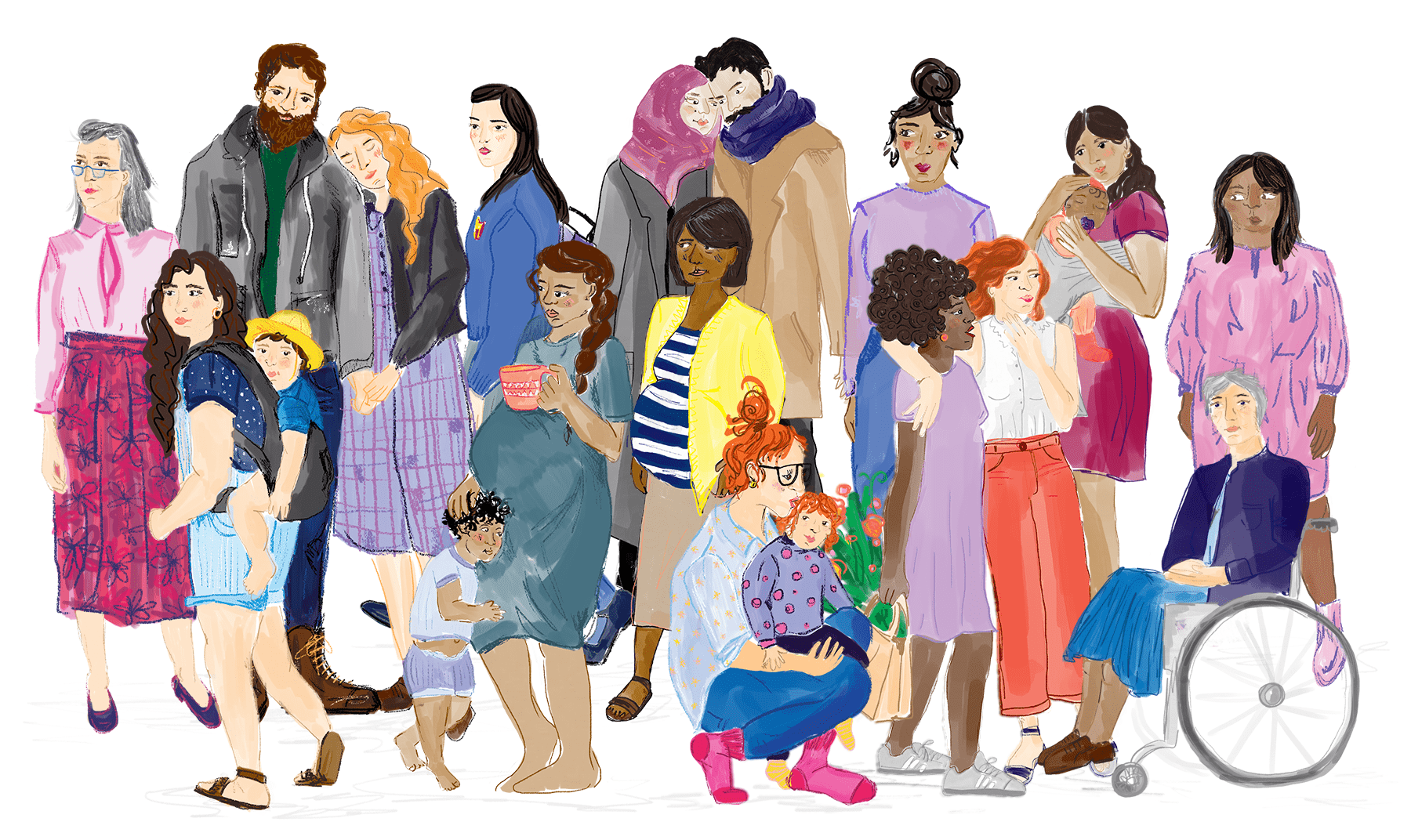Every Woman Campaign
Global Context
Women’s reproductive health, and abortion care in particular, continues to be targeted by extreme political agendas globally. While the United Nations has asserted that access to abortion is a human right, unsafe pregnancies and abortions continue to happen, putting women’s lives in danger. The denial of safe, free, accessible abortion care means women remain second class citizens in many places around the world, unable to make decisions regarding their own body. While progress has been made in some countries and states, the fight for equality is far from over.
Irish Context
A referendum in 1983 passed the 8th amendment into the Irish constitution. This amendment established a foetus as ‘the unborn’ and gave it an equal right to life to that of the pregnant women or girl. As a result, Ireland had one of the most restrictive reproductive healthcare regimes in the world.
There followed many cases of women and girls being harmed or dying as a result of denial of medical care that may have involved the ending or harming of a pregnancy. Rape and incest victims were denied the option of ending a forced pregnancy.
In 1992 a subsequent referendum allowed women and girls to get information and to leave Ireland to access abortion care in other countries. This led to many women traveling abroad each year to receive abortion care or women illegally importing abortion pills into Ireland.
Throughout this period, the public discourse around abortion in Ireland had been divisive and acrimonious, marred by disinformation campaigns by anti-abortion groups and church hierarchy interventions to spread and leverage stigma and shame. This was partly informed by catholic conservative values, but also by global targeting of abortion by the religious right and accompanying scare stories such issues as ‘abortion as contraception’, very late term abortions and false connections between abortion, infertility and breast cancer.
Because of these myths, the emotional nature of the issue and the spectre of being ostracised, Ireland was not a place where it was easy to start a conversation on abortion. From qualitative research, we learned that the Irish public felt they couldn’t speak freely about abortion, feeling unable to ask questions, fearing they didn’t have the facts and unsure how their comments would be received. While activist groups on both sides of the debate continued to spotlight their views, the ordinary public felt caught between two polarities, unable to resolve what seemed to be an irreconcilable issue.

No Equality Without Reproductive Rights
In 2017, as the Joint Oireachtas Committee hosted public hearings on the impacts of the 8th amendment, the National Women’s Council (NWC) campaigned with a fresh voice informed by this research. They enabled the public to talk about abortion in a different way, highlighting that abortion is a small but essential aspect of women’s healthcare, and without proper healthcare women can not have equal participation and equality of opportunity in Ireland.
This campaign set out a healthcare model for women and girls which centered reproductive healthcare – imagining what life would be like without the 8th amendment – and highlighting the existing inequalities women faced in Ireland at that time. It was called ‘Every Woman’.
Every Woman
Every Woman was not a political advocacy campaign, but a women’s voice campaign for health, well-being and equality of life choices. Talking about abortion as a ‘need’ rather than talking about it as a ‘right’, allows everyone to take a step back from the vitriolic politicised discourse to focus on the realities of individual experiences of abortion. As Orla O’Connor, director of NWCI said: “For women it’s not a political issue. It’s a personal and private one.”
Real Women, Not Rhetoric
This campaign avoided the language of politics, law, stigma and shame from the conversation, and instead focused on everyday human experience. The core message was that care around pregnancy, women’s health and sexual health are all ordinary requirements for every woman, and every woman has the right to free, safe and legal healthcare. Privacy and individual choice was key to this, as healthcare concerns should be a private matter between a patient and her doctor. No woman is the same, and every woman has individual experiences and needs.
This campaign concept was underlined by a visual style which deliberately provided a complete break with the ‘shock’ imagery associated with some lurid anti-abortion campaigns, instead focusing on all ordinary women in our society. It imagined a world where every woman could live their lives knowing their reproductive rights and healthcare were fully taken care of, respected, private, and within their control. This presented a positive image of an Ireland free of the 8th amendment.
To fully flesh-out this counter-narrative to the anti-abortion scare stories, Every Woman also had to address and answer the many anti-abortion myths. To do this, campaign materials had to engage with the ‘difficult questions’ and respond with factual and considered information. This was not about rhetoric, but about grounding the need for abortion in the realities of women’s lives.
Reception
Every Woman was positively received as a campaign. The stance of ‘need, rather than right’ was welcomed as a way of speaking about the issue and understanding the need to remove the 8th amendment. For the first time in Ireland, we could imagine what life would look like with legal abortion. We could create our future on our own terms. The campaign gained coverage in the media and paved the way for the civil society referendum campaign to remove the 8th amendment.
Who Needs Your Yes
In 2018, before the referendum took place, NWC followed up Every Woman with ‘Who Needs Your Yes.’ This campaign foregrounded the real experiences of women, their families and friends who had been affected by the 8th amendment. The results were emotive personal stories revealed on social media – from women who had to travel abroad to terminate a pregnancy with a fatal foetal abnormality, to fathers of young girls who had had to go abroad to terminate alone, to doctors angry at their inability to provide women with the care they need. The point was to encourage all people to think of the real women and girls in their lives who might ever need abortion care and who should receive that care in Ireland. All women and girls of all backgrounds, faith and politics needed a ‘yes’ in the referendum. This was an outstanding outpouring of support from real people, and showcased better than any slogan or poster every could the real need, and real support, for abortion care in Ireland.
Impact
In May 2018 the 8th amendment was replaced with a clear instruction to legislate for abortion in Ireland, with 67% voting in favour. This has given the women of Ireland legal but limited access to abortion and brought us closer to a more equal society.

